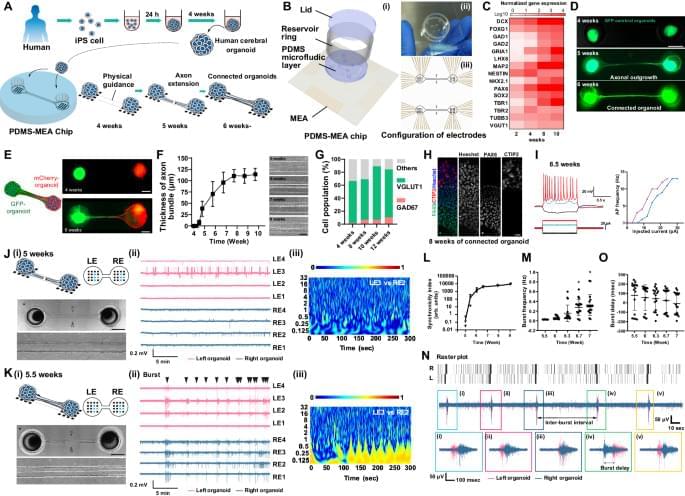Connecting cerebral organoids with an axon bundle models inter-regional projections and enhances neural activity. Optogenetic stimulation induces short-term plasticity, offering insights into macroscopic circuit development and functionality.



LimX Dynamics, a leading Chinese company in general-purpose robotics, has recently shared an exciting update on its latest innovation — the P1 bipedal robot. The company released a video showcasing the remarkable locomotion capabilities of the P1 as it navigates through a dense forest terrain. This significant milestone highlights the robot’s agility and adaptability in challenging environments.
Advanced Learning Techniques.
The P1 robot is equipped with cutting-edge reinforcement learning technology, allowing it to swiftly identify and respond to various external stimuli. This includes dynamically reacting to obstacles and uneven ground encountered during its traversal. Notably, the robot can autonomously right itself if pushed or kicked, demonstrating its robust stability and control.
Successful Testing in Tanglang Mountain.
LimX Dynamics conducted rigorous testing of the P1 robot in the rugged terrain of Tanglang Mountain, located in Shenzhen, China. Despite the unfamiliar surroundings, the robot excelled in its navigation tasks, showcasing exceptional performance in traversing complex terrains with ease.
P1: a platform for reinforcement learning systems.


Ohh nice! New vaccine science it seems though I’m not familiar with vaccines, this does seem like a novel approach. It’s kinda future proof to train the immune system to target proteins that are shared across all coronavirus’ I’m hoping it provides, as do they, that it provides a better solution than current vaccines.
The vaccine is made by attaching harmless proteins from different coronaviruses to minuscule nanoparticles that are then injected to prime the body’s defences to fight the viruses should they ever invade.
Because the vaccine trains the immune system to target proteins that are shared across many different types of coronavirus, the protection it induces is extremely broad, making it effective against known and unknown viruses in the same family.
“We’ve shown that a relatively simple vaccine can still provide a scattershot response across a range of different viruses,” said Rory Hills, a graduate researcher at the University of Cambridge and first author of the report. “It takes us one step forward towards our goal of creating vaccines before a pandemic has even started.”
Engineers at Princeton and North Carolina State University have combined ancient paper-folding and modern materials science to create a soft robot that bends and twists through mazes with ease.
American writer Meghan O’Gieblyn on when the mind is alive.



The AI of the future won’t just be a chatbot — it’ll be, according to OpenAI CEO Sam Altman, outfitted with incredibly detailed information about its users.
In an interview with the MIT Technology Review, Altman suggested that AI should be working for its users harder than even the hardest-working human executive assistant, and would know absolutely everything about whoever is using it.
Speaking to the magazine between a series of events at Harvard, which were hosted in part by the venture capital firm Xfund, the OpenAI cofounder said that the best use of AI would be a “super-competent colleague that knows absolutely everything about my whole life, every email, every conversation I’ve ever had, but doesn’t feel like an extension.”